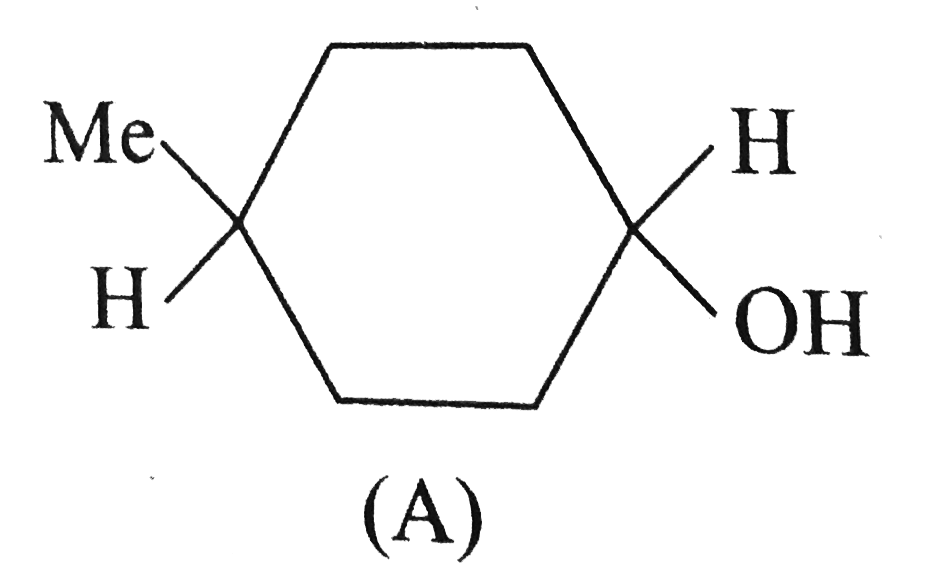Cone H2SO4 will not give any gas with
ZnSO4
barium phosphate
megnesium borate
sodium oxalate
The correct Answer is:a,b,c
To solve the question regarding which compounds will not react with concentrated sulfuric acid (H₂SO₄) to produce a gas, we will analyze each option provided: zinc sulfate, barium phosphate, magnesium borate, and sodium oxalate.
1. Understanding the Reactivity of Concentrated H₂SO₄:
Concentrated sulfuric acid is a strong dehydrating agent and can react with certain salts to produce gases. However, it does not react with all salts.
2. Analyzing Each Compound:
- Zinc Sulfate (ZnSO₄): Concentrated H₂SO₄ does not react with zinc sulfate to produce any gas. The sulfate ion (SO₄²⁻) is stable in the presence of concentrated sulfuric acid.
- Barium Phosphate (Ba₃(PO₄)₂): Similar to zinc sulfate, barium phosphate does not react with concentrated H₂SO₄ to produce any gas. The phosphate ion (PO₄³⁻) is also stable and does not release any gas upon reaction with concentrated sulfuric acid.
- Magnesium Borate (Mg(BO₂)₂): Concentrated H₂SO₄ does not react with magnesium borate to produce any gas. The borate ion (BO₃³⁻) is stable in this context as well.
- Sodium Oxalate (Na₂C₂O₄): This compound does react with concentrated sulfuric acid. The reaction produces sodium sulfate (Na₂SO₄) and oxalic acid (H₂C₂O₄). Upon heating, oxalic acid decomposes to release carbon dioxide (CO₂) and carbon monoxide (CO) gases.
3. Conclusion:
From the analysis, we can conclude that concentrated sulfuric acid will not produce gas with zinc sulfate, barium phosphate, and magnesium borate. The only compound that does produce gas is sodium oxalate.
Final Answer:
The compounds that will not give any gas with concentrated H₂SO₄ are:
- Zinc Sulfate (ZnSO₄)
- Barium Phosphate (Ba₃(PO₄)₂)
- Magnesium Borate (Mg(BO₂)₂)
Concentrated sulfuric acid is a strong dehydrating agent and can react with certain salts to produce gases. However, it does not react with all salts.
- Zinc Sulfate (ZnSO₄): Concentrated H₂SO₄ does not react with zinc sulfate to produce any gas. The sulfate ion (SO₄²⁻) is stable in the presence of concentrated sulfuric acid.
- Barium Phosphate (Ba₃(PO₄)₂): Similar to zinc sulfate, barium phosphate does not react with concentrated H₂SO₄ to produce any gas. The phosphate ion (PO₄³⁻) is also stable and does not release any gas upon reaction with concentrated sulfuric acid.
- Magnesium Borate (Mg(BO₂)₂): Concentrated H₂SO₄ does not react with magnesium borate to produce any gas. The borate ion (BO₃³⁻) is stable in this context as well.
- Sodium Oxalate (Na₂C₂O₄): This compound does react with concentrated sulfuric acid. The reaction produces sodium sulfate (Na₂SO₄) and oxalic acid (H₂C₂O₄). Upon heating, oxalic acid decomposes to release carbon dioxide (CO₂) and carbon monoxide (CO) gases.
From the analysis, we can conclude that concentrated sulfuric acid will not produce gas with zinc sulfate, barium phosphate, and magnesium borate. The only compound that does produce gas is sodium oxalate.
The compounds that will not give any gas with concentrated H₂SO₄ are:
- Zinc Sulfate (ZnSO₄)
- Barium Phosphate (Ba₃(PO₄)₂)
- Magnesium Borate (Mg(BO₂)₂)
Topper's Solved these Questions
- QUALITATIVE INORGANIC SALT ANALYSISBOOK - CENGAGE CHEMISTRY ENGLISHCHAPTER - QUALITATIVE INORGANIC SALT ANALYSISEXERCISE - Exercises (Single Correct) Part-A (Analysis Of Anions)
24 Videos
- QUALITATIVE INORGANIC SALT ANALYSISBOOK - CENGAGE CHEMISTRY ENGLISHCHAPTER - QUALITATIVE INORGANIC SALT ANALYSISEXERCISE - Exercises (Single Correct) Part-B(Dry Test)
10 Videos
- QUALITATIVE INORGANIC SALT ANALYSISBOOK - CENGAGE CHEMISTRY ENGLISHCHAPTER - QUALITATIVE INORGANIC SALT ANALYSISEXERCISE - Exercises (Multiple Correct) Part-C(Dry Test)
8 Videos
- P-BLOCK GROUP 18 ELEMENTS - THE INERT GASESBOOK - CENGAGE CHEMISTRY ENGLISHCHAPTER - P-BLOCK GROUP 18 ELEMENTS - THE INERT GASESEXERCISE - Ex 5.1 (Objective)
14 Videos
- REDUCTION AND OXIDATION REACTION OF ORGANIC COMPOUNDSBOOK - CENGAGE CHEMISTRY ENGLISHCHAPTER - REDUCTION AND OXIDATION REACTION OF ORGANIC COMPOUNDSEXERCISE - SUBJECTIVE TYPE
4 Videos
Similar Questions
On treated with dilute H2SO4, a salt gives a gas which turns lime water milky. The salt can be
View SolutionHydration of 3-phenylbut-1-ene in dil H2So4 will give mainly :
View SolutionKBr,on reaction with conc H2SO4 give reddish brown gas which bleaches moist limus paper .The evolved gas is
View SolutionWhy Zn reacts with dilute H2SO4 to give H2 gas but Cu does not ?
View SolutionGive reason why?
Conc. H2SO4 is not a drying agent for H2S?
View SolutionA sodium salt (A) is heated with cone. Sulphuric acid. The evolved gas truns moist litmus paper red and producess white fumes in contact with a glass rod moistened with ammonia solution. It also gives white precipitate when passed through AgNO3 solution. When the salt is heated with MnO2 and cone. H2SO4, a gas with an irritating smell is evolved which turns starch-iodide paper blue. Identify the salt and the gaseous product evolved from it. Explain your answer with relevant chemical equations.
View SolutionConc. HNO3+H2SO4 mixture gives
View Solution
Dehydration of (A) with conc. H2SO4 gives a compound that exists in two isomeric forms. Give the structurest of both the isomers.
View SolutionPhenol is heated with phthalic anhydride in the presence of conc. H2SO4. The product gives pink colour with alkali. The product is
View SolutionA colourless inorganic compound (A) imparts a green colour to flame. Its solution does not give white precipitate with H2S. Its solution gives white precipitate with conc. H2SO4 which is insoluble in dil. H2SO4. When it is heated with K2Cr2O7 and conc. H2SO4, a red gas is evolved. The gas when passed through aqueous NaOH solution turns it Yellow. Identify the compound (A) and give chemical reactions.
View Solution
